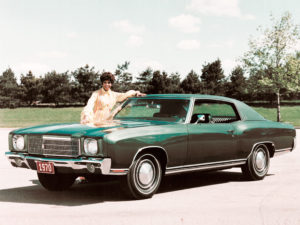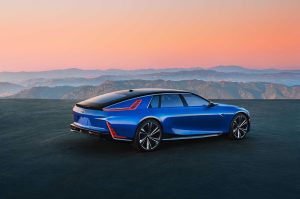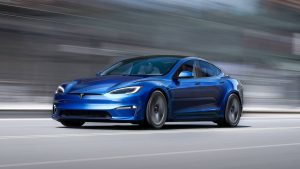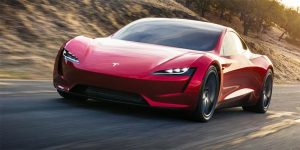The annual General Motors sustainability report is out. It focuses on the successes of 2019 as well as the path forward. GM, the parent company of the Chevrolet, Buick, GMC, Cruise, and Cadillac brands, among others, has been very public with its push toward sustainability in recent years. New numbers released by the company prove that the efforts are paying off.
General Motors has invested $2.2 billion into its Detroit-Hamtramck Assembly Plant. Built on the site of the original Dodge factory, the plant was producing the Cadillac CT6, Chevrolet Volt, Buick LaCrosse, and Chevrolet Impala. In May 2020, the plant began retooling to become GM’s first planet dedicated exclusively to electric vehicles. In the future, the company plans to make the Cruise Origin, GMC Hummer EV, and Cadillac Escalade EV there. Once retooling is complete, the plant will support 2,200 jobs.
For five consecutive years, General Motors has been the only automaker on the Dow Jones Sustainability Index (DJSI) for North America. That index is comprised of sustainability leaders, as identified by RobecoSAM, a specialist in sustainability investing, that includes invited members who are then ranked and divided into submarkets and by region. 2019 marked the first time that GM had been named to the DJSI World Index, which is comprised of the leaders from a variety of regions.
DJSI represents the top 20 percent of the largest 600 North American companies inn the S&P Global BMI based on long-term economic, environmental and social criteria.
General Motors has been named a U.S. EPA Energy Star Partner of the Year -Sustained Excellence in Energy Management making it nine years that it earned this honor. In its annual announcement of Energy Star Partners of the Year in April, 191 companies garnered awards. According to the EPA, “in 2018 alone, Energy Star and its partners helped Americans avoid nearly $35 billion in energy costs.”
General Motors has committed $20 billion in capital and engineering resources toward the development of electric and autonomous vehicle programs between 2020 and 2025. A major step in that direction was the debut of the Ultium battery and new flexible vehicle architecture earlier this year, which has already resulted in a partnership with Honda.
Part of sustainability is not having vehicles or parts go to junk yards. A way to quell this is to fie tune safety technology, which is inherently designed to prevent crashes. General Motors vehicles that are equipped with Automatic Emergency Braking (or Forward Automatic Braking) with Forward Collision Alert saw a 46 percent reduction in rear-end crashes according to a study conducted in partnership with the University of Michigan Transportation Research Institute.
The technology was first applied to a vehicle in 2004. In 2016, the company committed to making forward collision alert and automatic emergency braking standard on virtually all new light vehicles by 2022.
By 2030, 50 percent of the parts used in General Motors vehicles will be made with sustainable materials. This is the result of a partnership between GM and its suppliers. Ford has also taken strides to make more sustainable parts, including using recycled coffee beans from McDonalds to create car parts.
GM’s new Ultium battery is made from nickel-manganese-cobalt-aluminum chemistry. This results in a reduction in the use of combalt by 70 percent. Cobalt mining is an extremely dirty process that frequently uses child labor. The chemistry has been developed in partnership with LC Chem, but is proprietary for GM.
By 2030, 100 percent of all GM-owned facilities in the U.S. will be powered by renewable energy. This includes the company’s Spring Hill, Tennessee plant, which is slated to be run exclusively on solar power by 2022. GM aims to have their global facilities follow suit by 2040.
For the third consecutive year, GM has made 3BL Media’s 100 Best Corporate Citizens list. The list recognizes outstanding environmental, social and governance transparency and performance among the 1,000 largest U.S. public companies. 3BL Media has represented some of the largest companies on the planet including Morgan Stanley, General Mills, UPS, Pepsico, GM, and CVS Health.
GM was included on the S&P 500 ESG Index this year. It was launched in 2019 and recognizes strong performance in environmental, social and governance factors.








